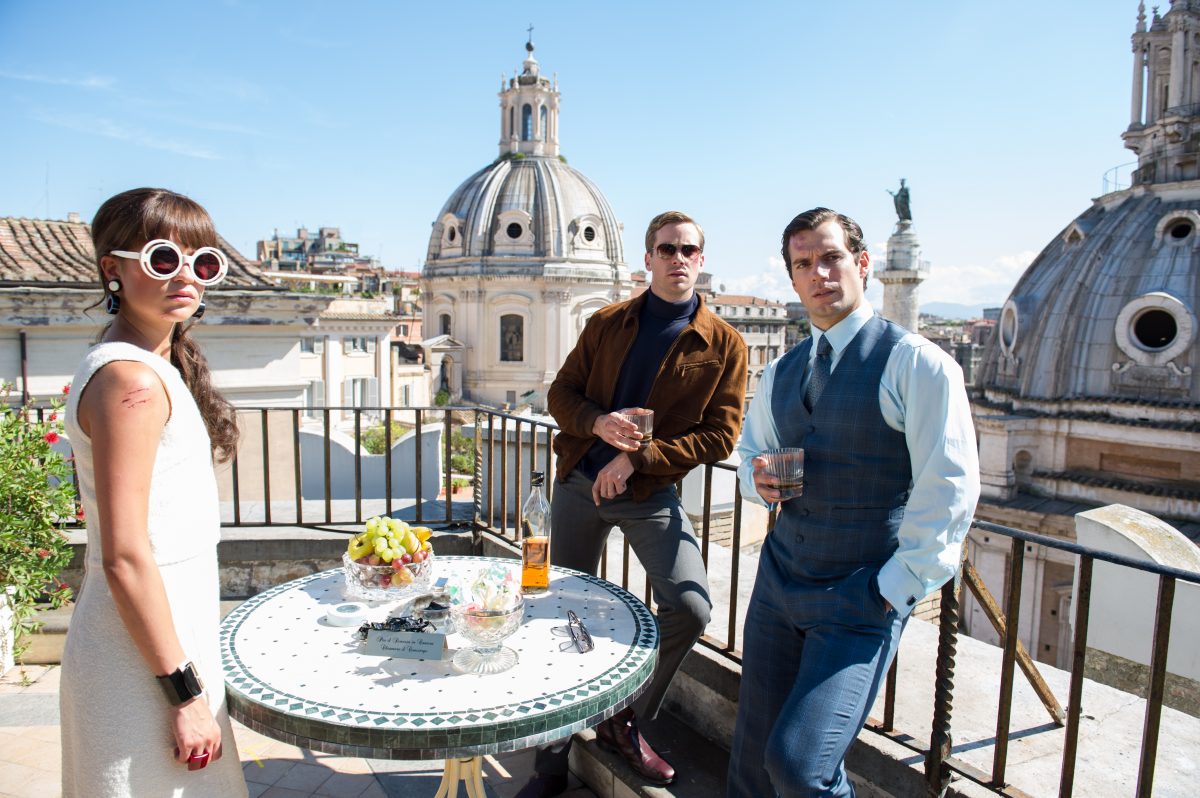
Entering the theater, I wondered if The Man from U.N.C.L.E could deliver on its trailer, which promised a stylish, mod, winking thriller. I’m happy to report that it does . . . but that’s just about all it delivers. The film practically elbows you in the ribs with its (somewhat smug) sense of itself as a drolly sophisticated confection—it all feels a bit forced. Nonetheless, I enjoyed The Man from U.N.C.L.E well enough, and I suspect you will, too.
The film is directed by Guy Ritchie, who, in recent years, has abandoned the hyper-violent, Tarantino-esque gangster flicks of his youth in favor of highly polished studio fare, like Sherlock Holmes. Still, he can’t help but to call attention to his directorial bag of tricks—quick cuts, freeze frames, split screens, jokes that play out in the background of a scene. It’s fun—to a point. Until it gets a little exhausting.
The film is based on the popular ’60s TV show about two super spies—this was when America was in the midst of peak Bond mania, mind you—a master thief turned suave CIA agent named Napoleon Solo (Henry Cavill) and a rigidly by-the-book KGB agent named Illya Kuryakin (Armie Hammer) who are forced to work together. In this case, their mission is to recover a nuclear scientist who has been kidnapped by a crime syndicate, led by the glamorous Victoria (Elizabeth Debicki). Their greatest hope to recover the scientist, who has the capacity to build a nuclear bomb, is by recruiting his beautiful and resourceful mechanic daughter Gaby (Alicia Vikander, the A.I. from Ex Machina).
The film starts with a wonderful set piece that it never quite tops: Solo, who doesn’t know that Illya will soon become his (reluctant) ally, informs Gaby that she’s in danger and only he can help her. They race through the streets of East Berlin, chased by Illya. This sets up the two men’s personalities perfectly—Solo, cool and unflappable; and Illya, persistent, like a dog with a bone. A bit where Illya tries to stop Solo’s car with his bare hands—much to Solo’s dismay—and another one where Solo instructs Gaby to drive through a narrow pathway, only to have them get stuck and climb through a strategically placed window, are laugh out loud clever.
Eventually, the film takes us to the Mediterranean coast, to posh parties, and to even posher hotels, where Kuryakin and Gaby pose as newlyweds (Solo’s alias is a bit less clear; he’s basically just hanging around looking good). The clothing is wonderful—color blocked mini dresses for Gaby and beautifully tailored suits and jackets for the men—and the two handsome leads have decent enough chemistry as the squabbling frenemies. (However, I could’ve used more of Hugh Grant as the intelligence boss who drolly intones lines like, “For a special agent, you’re not having a very special day, are you?”) There’s a longish sequence where Solo gets captured and (mildly) tortured that I could’ve done without and some of the film’s gags get repetitive. The film ends with the promise of a sequel. I’ll be there, this time with my expectations appropriately in check.
